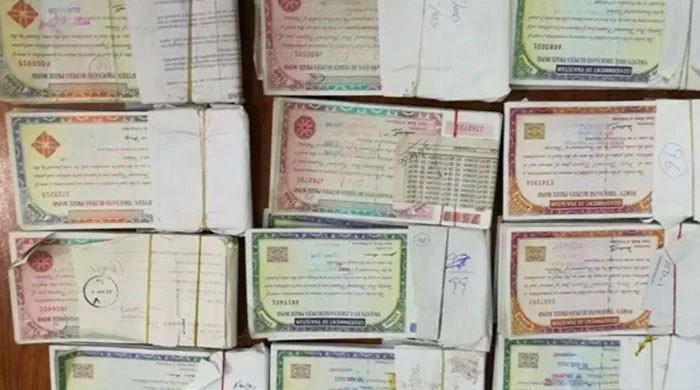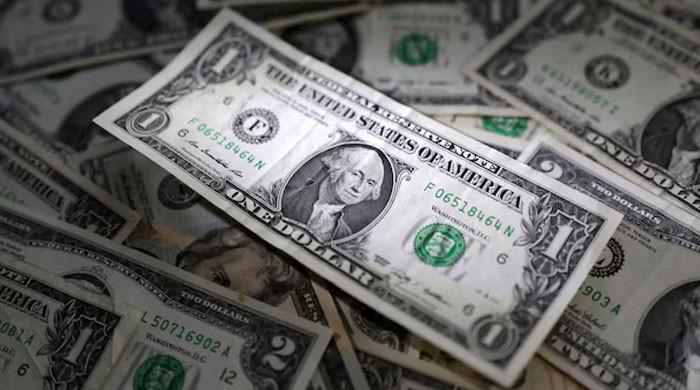PSX extends decline amid ‘IMF review concerns and tax shortfall'
Tax shortfalls and real estate incentives raising concerns ahead of IMF review, says analyst
February 06, 2025

- PSX plunges 1,634 points, closes at 110,301.16.
- Bearish sentiment persists as index hits 109,405 low.
- KSE-100 sees -1.46% decline after brief intraday gains.
The stock market remained under pressure on Wednesday, with investors reacting cautiously to the looming International Monetary Fund (IMF) review and concerns over revenue shortfalls.
The market struggled for direction, facing foreign outflows, global economic uncertainties, and policy developments in the real estate sector.
The Pakistan Stock Exchange's (PSX) benchmark KSE-100 Index plunged 1,634.22 points (-1.46%), closing at 110,301.16, down from the previous session's 111,935.38.
The index hit an intraday high of 112,234.15 before plummeting to a session low of 109,405.53.
Market analysts attributed the muted sentiment to the upcoming IMF review, set to begin later this month.
Ahfaz Mustafa, CEO of Ismail Iqbal Securities, speaking to Geo.tv said: "Markets are under pressure due to the upcoming IMF review."
"There is a tax shortfall that needs to be addressed, and the incentives being provided to the real estate sector are causing people to become cautious as it may complicate the review," he said.
The Federal Board of Revenue (FBR) is facing a massive revenue shortfall of Rs468 billion for the first seven months (July-January) of FY25, collecting Rs6,496 billion against a target of Rs6,964 billion.
The shortfall widened by Rs84 billion in January 2025, with the FBR collecting Rs872 billion, falling short of the Rs956 billion target. While the tax authority achieved a 29% month-on-month increase, it remains significantly behind IMF targets, raising concerns about potential additional tax measures.
Meanwhile, the Prime Minister’s Task Force on Housing has finalised a relief package for the real estate sector, proposing tax reductions for buyers and sellers to revitalise the sector.
The package includes reducing property sales tax from 4% to 2%, cutting the buyer’s tax from 4% to 0.5%, and eliminating federal excise duties on property transactions. Additionally, it proposes tax exemptions for first-time home buyers and increasing the construction limit from two-storey to three-storey buildings.
While these measures aim to boost real estate investment, they have also sparked concerns about their impact on tax revenue and potential complications in IMF negotiations.
The Ministry of Finance's debt report revealed that Pakistan’s total public debt surged to Rs71.2 trillion in FY24, rising 13% from Rs62.8 trillion in FY23.
Despite efforts to control the debt trajectory, the government failed to meet public debt reduction targets under the Fiscal Responsibility and Debt Limitation Act.
Domestic debt stood at Rs47.16 trillion, while external debt, in rupee terms, reached Rs24.08 trillion. This rising debt burden continues to pressure the fiscal outlook, adding to concerns over financial stability and Pakistan’s ability to meet IMF-mandated reforms.
The PSX extended losses on Tuesday, as escalating global trade tensions, falling crude oil prices, and major foreign outflows dampened investor confidence.
The benchmark KSE-100 Index fell 809.63 points (-0.72%), closing at 111,935.38 after touching a high of 113,649.07 and a low of 111,828.10 points.
Analysts noted that uncertainty over trade policies, coupled with political instability and rupee volatility, contributed to the bearish sentiment.











